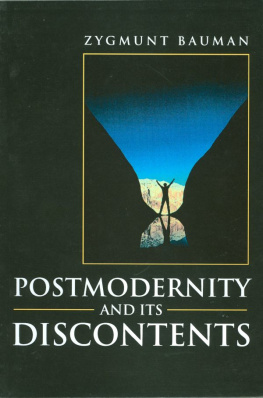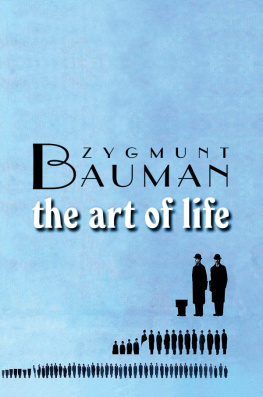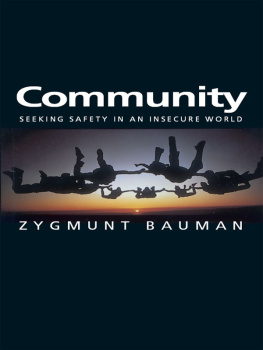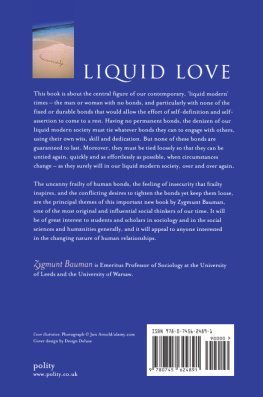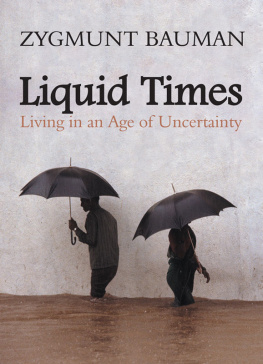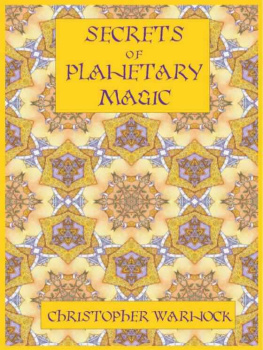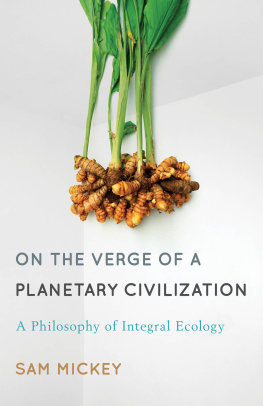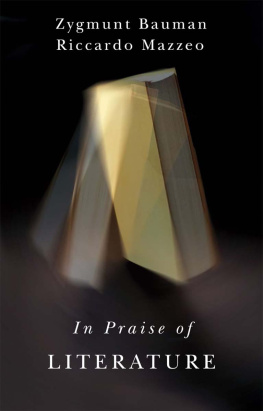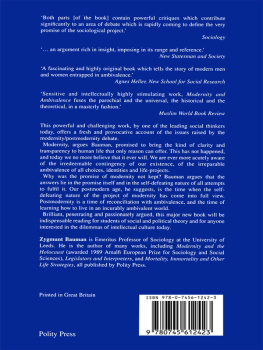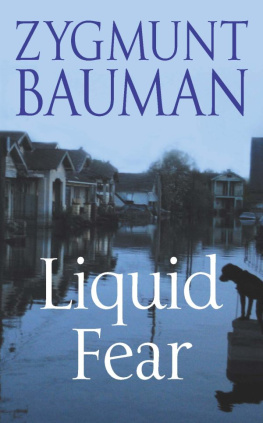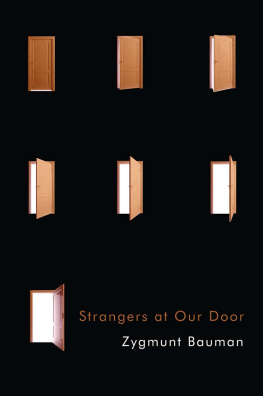Bauman - Religion and ecology: developing a planetary ethic
Here you can read online Bauman - Religion and ecology: developing a planetary ethic full text of the book (entire story) in english for free. Download pdf and epub, get meaning, cover and reviews about this ebook. City: New York, year: 2014, publisher: Columbia University Press, genre: Religion. Description of the work, (preface) as well as reviews are available. Best literature library LitArk.com created for fans of good reading and offers a wide selection of genres:
Romance novel
Science fiction
Adventure
Detective
Science
History
Home and family
Prose
Art
Politics
Computer
Non-fiction
Religion
Business
Children
Humor
Choose a favorite category and find really read worthwhile books. Enjoy immersion in the world of imagination, feel the emotions of the characters or learn something new for yourself, make an fascinating discovery.

Religion and ecology: developing a planetary ethic: summary, description and annotation
We offer to read an annotation, description, summary or preface (depends on what the author of the book "Religion and ecology: developing a planetary ethic" wrote himself). If you haven't found the necessary information about the book — write in the comments, we will try to find it.
Bauman: author's other books
Who wrote Religion and ecology: developing a planetary ethic? Find out the surname, the name of the author of the book and a list of all author's works by series.
Religion and ecology: developing a planetary ethic — read online for free the complete book (whole text) full work
Below is the text of the book, divided by pages. System saving the place of the last page read, allows you to conveniently read the book "Religion and ecology: developing a planetary ethic" online for free, without having to search again every time where you left off. Put a bookmark, and you can go to the page where you finished reading at any time.
Font size:
Interval:
Bookmark:
RELIGION AND ECOLOGY
RELIGION AND ECOLOGY
developing a planetary ethic
whitney a. bauman
COLUMBIA UNIVERSITY PRESS
New York

COLUMBIA UNIVERSITY PRESS
PUBLISHERS SINCE 1893
NEW YORK CHICHESTER, WEST SUSSEX
cup.columbia.edu
Copyright 2014 Columbia University Press
All rights reserved
Library of Congress Cataloging-in-Publication Data
Bauman, Whitney.
Religion and ecology: developing a planetary ethic / Whitney A. Bauman.
pages cm
Includes bibliographical references and index.
ISBN 978-0-231-16342-2 (cloth: alk. paper)ISBN 978-0-231-16343-9 (pbk.: alk. paper)ISBN 978-0-231-53710-0 (e-book)
1. EcologyReligious aspects. I. Title.
BL65.E36B38 2014
20177dc23
2013028197
A Columbia University Press E-book.
CUP would be pleased to hear about your reading experience with this e-book at .
: 84 MILLION STARS IN MILKY WAY, OHAINAUT/ESO/HANDOUT/DPA/CORBIS
COVER DESIGN: CHANG JAE LEE
References to Internet Web sites (URLs) were accurate at the time of writing. Neither the author nor Columbia University Press is responsible for URLs that may have expired or changed since the manuscript was prepared.
As with any written project, this one represents the manifestation of many biohistorical flows. My ideas, like all ideas, are never fully my own and are fed by the histories of thinking in many different cultures throughout the world. Likewise, they are fed by the elements of the 13.7-billion-year process of cosmic expansion and 4.5 billions of years of geoevolution. Thinking more locally, there are many other earth bodies at whose expense I think, because food, water, air, and technologies are necessary in order for me to continue living on as a centralized response-able organism. So, I have to start these pages by thanking these planetary others: human, animal, plant, mineral, machine, and the processes that have led to the manifestation of my own subjective becoming.
More formally, this book would not be possible without the help of several academic influences over the past five years. I first want to thank all of my friends and colleagues at Florida International University, where I have been fortunate and privileged enough to be on a tenure-track position in religious studies. This privileged economic space is essential for the completion of such a project. Second, I want to thank all the organizations that have nurtured my thinking in these areas: the Religion and Ecology Group of the American Academy of Religion; the Forum on Religion and Ecology; the International Society for the Study of Religion, Nature, and Culture; the Queer Theory Reading Group at the University of Miami; InterFaithOut, a Project of Save Dade; and the Institute for Religion in an Age of Science are the primary arenas that have been fruitful for my thinking.
This project was also made possible by a number of grants and fellowships, including the 2009 Templeton Award for Theological Promise, FIU College of Arts and Sciences Summer Research Grant 2009, Wabash Summer Research Fellowship 2010, the Bhagwan Mahavir Junior Faculty Fellowship 2011, the Morris and Anita Broad Research Fellowship 2011, and a USINDO Travel Grant 2012. It was in Heidelberg in 2009 at conference associated with the Templeton Award for Theological Promise that these ideas got off to a very rocky start, and I thank all of the participants there, especially Michael Welker and Peter Paris, for the brutal honesty that pushed me into thinking about these ideas in a much more sustained way. The Bhagwan Mahavir and Broad Fellowships allowed me to travel through India in the summer of 2011, visiting various Jain communities and researching Jainism and science. Some of the ideas found here about multiperspectivalism are in deep debt to that experience. Furthermore, I have been fortunate enough to travel to Indonesia and teach at the University of Gadjah Mada in Yogyakarta, Indonesia several summers now and the dialogues I have begun there with friends and colleagues have contributed greatly to these pages.
In addition to these academic habitats and sources of funding, a dozen other conference papers and countless conversations at those conferences have led to the developments herein. They are too long to enumerate here, but I will mention several publications that were instrumental for developing these ideas, which emerged from some of these conferences. thinking about planetary identities. Several other articles and chapters have of course shaped my writing along the way over the past few years, including:
De-Constructing Transcendence: The Emergence of Religious Bodies (with James W. Haag) in The Body and Religion: Modern Science and the Construction of Religious Meaning, ed. David Cave and Rebecca Norris (Brill 2012), 3755.
Inherited Land: The Changing Grounds of Religion and Ecology, ed. Whitney Bauman, Richard Bohannon, and Kevin OBrien (Wipf and Stock, 2011).
Fashioning a Persuasive Environmental Ethic: Thinking Without Surface and Depth in Ecozona 2, no. 2 (2011): 1739.
Technology and the Polytheistic Mind: From the Truth of the Global to Planetary Lines of Flight in Dialog: A Journal of Theology 50, no. 4 (Winter 2011): 344353.
Christianity and Nature in the Routledge Companion for Religion and Science, ed. Gregory Peterson, Michael Spezio, and James W. Haag (Routledge, 2011), 368378.
These writings in particular are important for the ideas weaving in and out of the pages of this book. I thank all of the editors, coeditors, and coauthors I worked with on these projects, especially Rick Bohannon, Kevin OBrien, James Haag, Emily Silverman, and Dirk von der Horst.
In addition to these formal interlocutors in writing and conferencing, I must also think a number of friends and colleagues who have helped me bounce these ideas around: Christine Gudorf, Laurie Schrage, Jose Gabilando, Steven Blevins, Brenna Munroe, and Catherine Keller. Through numerous conversations and what may seem like informal encounters, these people have especially helped shape the ideas of this text. I am also indebted to the anonymous reviewers of this manuscript and of course to my editors at Columbia University Press, Wendy Lochner and Christine Dunbar. A huge thanks goes to Kimberly Zwez, my graduate student assistant, for painfully reading through versions of this text and compiling the list of terms for the glossary. For everything that you can understand in these pages, it is as the result in no small part of Kimberlys clarifications; for those things that are still obtuse, blame them on me. I also give special thanks to Christine Gudorf, who proofread and commented on the final version of this manuscript for me: thanks for making this a better book and sorry it will inevitably fall short of your perfection! In addition, I would be remiss if I did not thank my closest friends and family for supporting me, loving me, making me laugh, and making me get out of my head: Immy, Mom, Dad, Jim, Ceciley, Andrew, Marshall, Little D, Steven, Ms. Terry, Bob, Giorgio, Matt, and NickI truly love you all. Finally, I have to thank the students I have had over the past five years at Florida International University and at the University of Gadjah Mada. Teaching has refined my thinking, and the classroom has been a source of fireworks for my mind; without all these students this book would definitely not be possible. It is to them that I dedicate this book.
An occurrence or event, in fact, is perhaps nothing other than an interstitial crossing of multiplicities, whose difference, decision, the spacing of differentiation, chance, and the uncertain nothing, all meet in a moment of becoming.
Next pageFont size:
Interval:
Bookmark:
Similar books «Religion and ecology: developing a planetary ethic»
Look at similar books to Religion and ecology: developing a planetary ethic. We have selected literature similar in name and meaning in the hope of providing readers with more options to find new, interesting, not yet read works.
Discussion, reviews of the book Religion and ecology: developing a planetary ethic and just readers' own opinions. Leave your comments, write what you think about the work, its meaning or the main characters. Specify what exactly you liked and what you didn't like, and why you think so.

